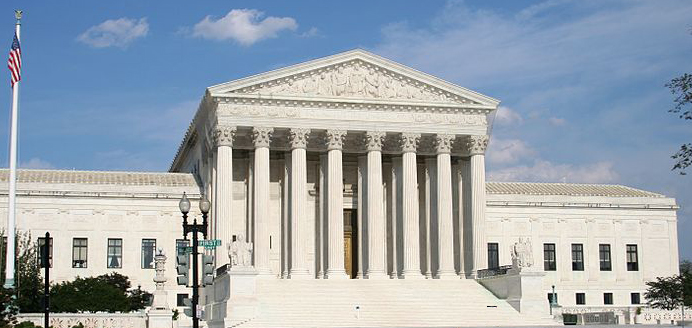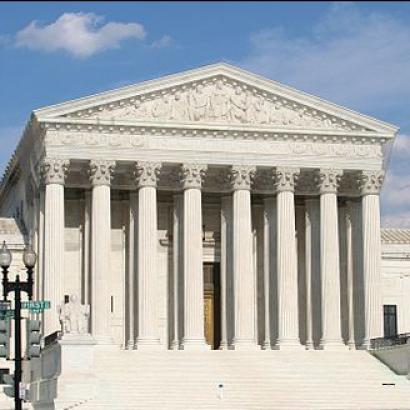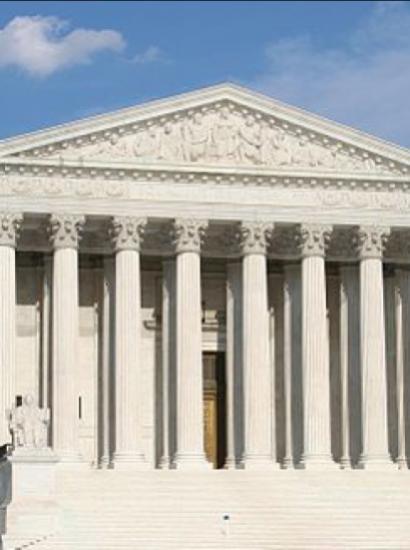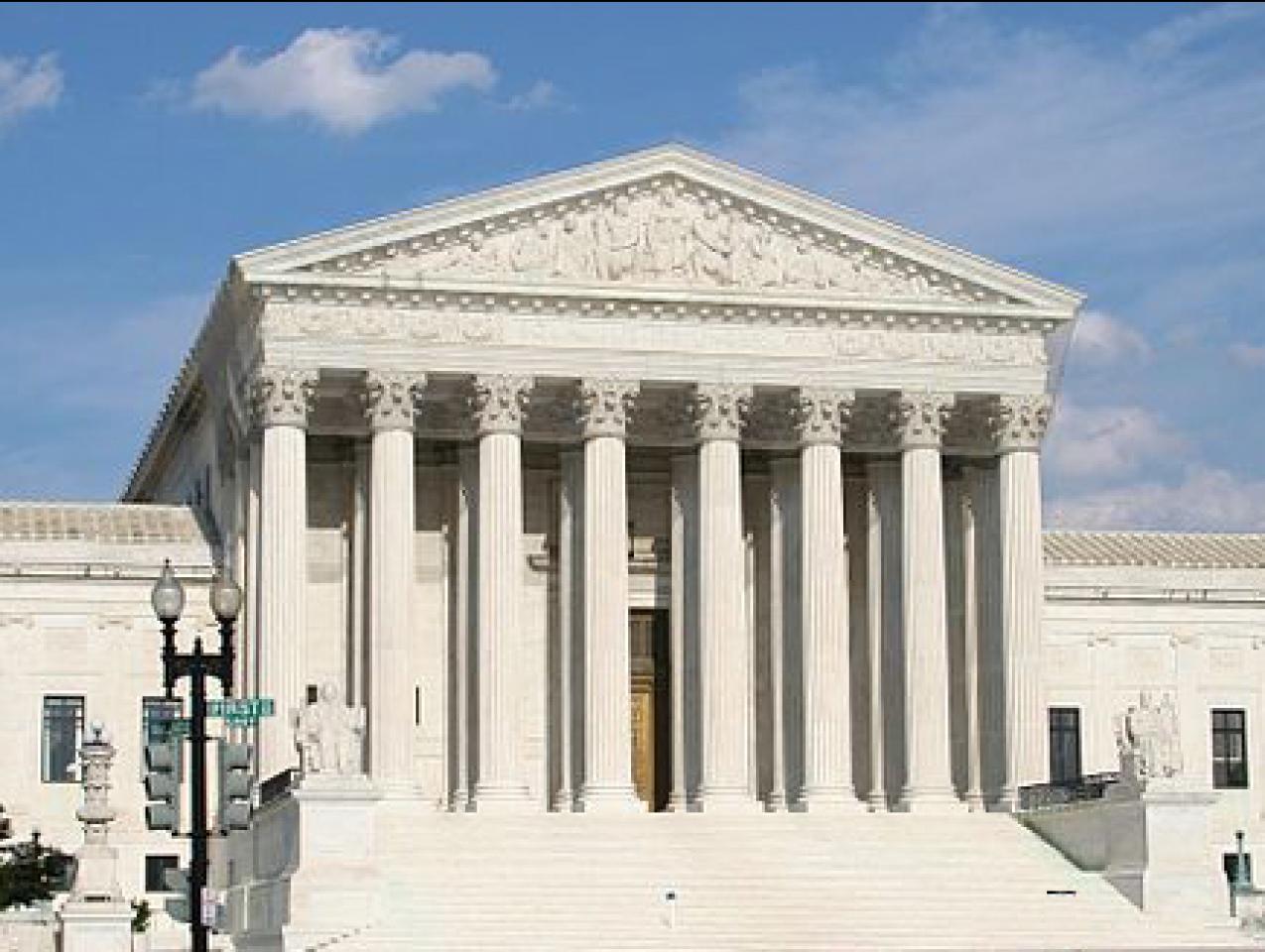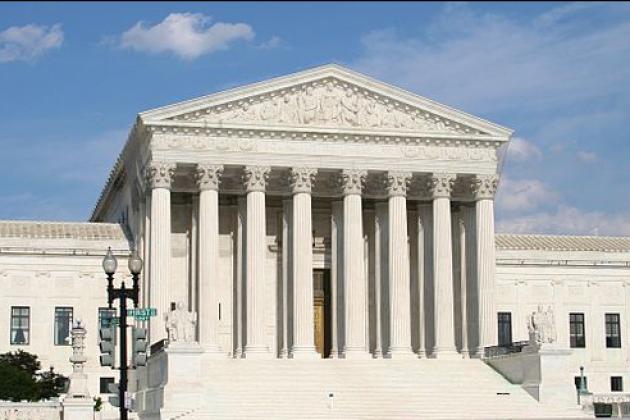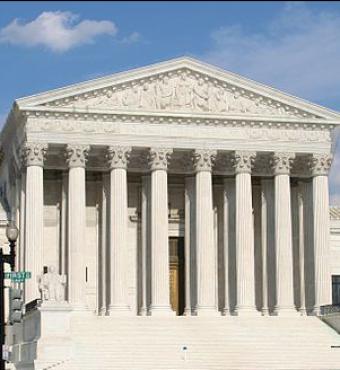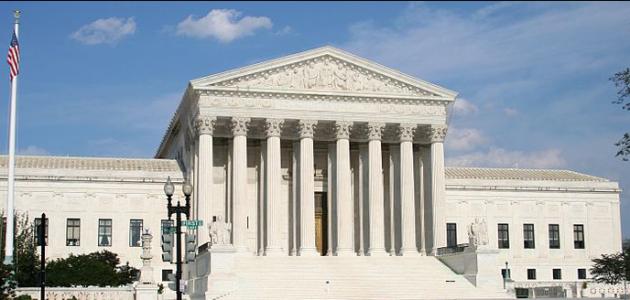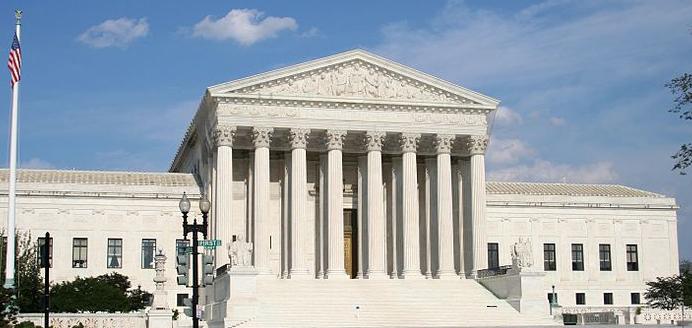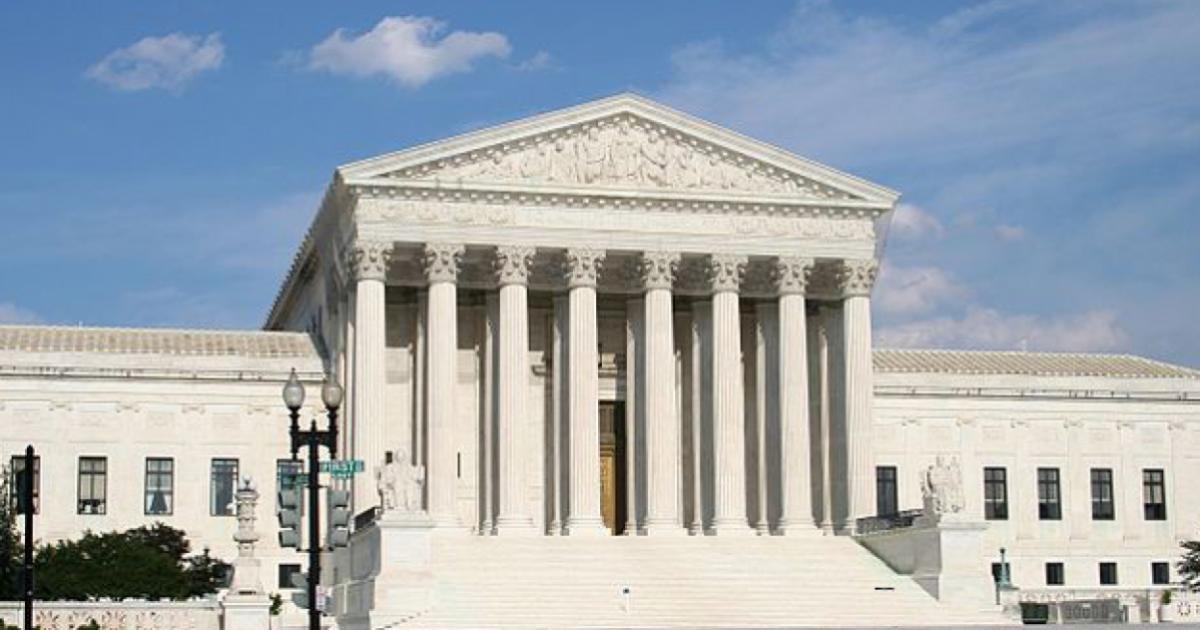- Law & Policy
Among the most regrettable, if foreseeable, political consequences of Dobbs v. Jackson Women’s Health Organization has been the rise of vehement and prolonged picketing outside the homes of the six conservative Supreme Court justices, both before and after the decision came down June 24.
The key controversy is whether this picketing is protected by the First Amendment or whether it is just the latest version of high-tech intimidation that should be banned by forcibly removing the pickets before violence occurs. Regrettably, too many First Amendment experts, like George Washington Law School Professor Jonathan Turley, have adopted what I termed a generation ago First Amendment exceptionalism. This dangerous attitude turns “Congress shall make no law . . . abridging the freedom of speech” into a general mandate offering protection to all sorts of aggressive conduct, when the clause’s proper office is to prevent aggressive legislation from outlawing all forms of dissent displeasing or offensive to the powers that be.
Today, both the federal government and the states take the position that the only response to menacing pickets is to allow them to remain in place, while providing the targets of that picketing extensive security measures to prevent outright violence in ways consistent with recent legislation that affords the justices round-the-clock security “on par with those granted to some members of the executive and legislative branches.” The pickets use bullhorns, and their actions surely inhibit the free entry to and exit from these residences by the justices and their families. The presence of an armed guard only raises the bedlam. Multiple alternative forums are available to protest Dobbs, but this ugly combination of intimidation and invasion of privacy is tolerated as the new normal. Moving the demonstrators to another place would avoid these dreadful complications.
Indifferent to Lawbreaking
Long before these demonstrations took place, both the federal government and the states passed general laws, both broad and narrow, to address these problems. 18 U.S.C. § 1507 addresses “picketing or parading” in broad terms as any action done “with the intent of interfering with, obstructing, or impeding the administration of justice, or with the intent of influencing any judge . . . in the discharge of his duty, pickets or parades . . . in or near a building or residence occupied or used by such judge . . . or with such intent uses any sound-truck or similar device or resorts to any other demonstration in or near any such building or residence[.]”
About this statute, Professor Turley takes the indefensible provision that once Dobbs has come down, the statute is no longer applicable because there is “no chance that the protesters are interfering, impeding, or influencing the decision.” But these protesters well know that the Supreme Court will surely be asked to pass on myriad abortion statutes, and they want to make clear right now that recalcitrant justices will continue to pay a high personal price for upsetting future progressive legislation or approving of conservative laws. This is arguably an attempt of intimidation to influence the justices’ future decisions under 18 U.S.C. § 1507.
President Biden backs the protesters when they engage in allegedly peaceful protests outside the justices’ houses. And Attorney General Merrick Garland continues to refuse to enforce the statute, which covers both peaceful and violent protests. Their decisions are utterly inexplicable. The most direct precedent, Frisby v. Schultz (1988), held that there was sufficient justification to enforce a categorical ban against picketing against persons in private residences—ironically, at the behest of a private physician who regularly performed abortions. Even though Justice O’Connor acknowledged that picketing was a “core” First Amendment right, she upheld this statute because “the ordinance is intended to prohibit only picketing focused on, and taking place in front of, a particular residence.” Neither the president nor the attorney general has made any efforts to discharge the fundamental executive function under Article II, Section 3 of the Constitution that requires that the president and his key officials “shall take Care that the Laws be faithfully executed.”
So, by default, the dispute has shifted to the state governments of Maryland and Virginia. It was no surprise that Gail Curley, marshal of the United States Supreme Court, wrote state officials in both states on July 1, urging them to enforce more generalized local laws. Maryland’s “unlawful picketing and assembling law,” for instance, stipulates that “a person may not intentionally assemble with another in a manner that disrupts a person’s right to tranquility in the person’s home.” But the governments in both states have sought to pass the buck back to the federal government, citing their First Amendments objections to these statutes. State officials in Maryland and Virginia are concerned not about the general provisions of their respective statutes but about built-in exceptions they believe “are unenforceable, since they aren’t content neutral,” as the Wall Street Journal reports. For example, the first exception in the Maryland statute applies to any “picketing or assembly in connection with a labor dispute”; the second to picketing when a person’s home is also his or her place or business; and third to when the premises are “commonly used for the discussion of subjects of general public interest.” None applies to the pickets outside of the Justices’ homes.
These exceptions are intended to allow picketing where it informs various individuals who come to engage in commercial, political, or social transactions at these establishments, which is never the case at ordinary homes. A sensible First Amendment approach should welcome these exceptions, for they allow picketing where it has the greatest value and smallest risk. But Michael Ricci tweeted on behalf of Maryland Governor Larry Hogan that because of these exceptions Curley’s letter “has been questioned by the Maryland Attorney General’s Office.”
The point is far from idle, and it can be put in context only by following the curious path of American First Amendment law.
Exceptions or the Rule?
The tale begins with the famous Supreme Court decision in Hague v. CIO (1939). Frank Hague, the long-time mayor of Jersey City, categorically prohibited the Committee for Industrial Organization from picketing on public property to explain its views of the newly adopted National Labor Relations Act. Hague’s actions relied on an earlier Supreme Court case, Davis v. Massachusetts (1897), which had held that the City of Boston had absolute control over the Boston Commons, like any private property owner, and so could exclude all speakers from its land, just as Hague had excluded members of the CIO. In response, Justice Owen Roberts decreed in Hague:
Wherever the title of streets and parks may rest, they have immemorially been held in trust for the use of the public and, time out of mind, have been used for purposes of assembly, communicating thoughts between citizens, and discussing public questions.
These rights in turn gave special protection to labor unions under both the privileges and immunities clause and the equal protection clause of the Fourteenth Amendment.
It is easy to read Hague as requiring that special protection be given to unions. Then, in 1972, Police Department of City of Chicago v. Mosley (1972) held that a local ordinance that forbade picketing within 150 feet of a public school was unconstitutional because it contained an exception for “the peaceful picketing of any school involved in a labor dispute.” Hence, Chicago could not bar a lone picket, challenging racial discrimination in public education, whose conduct was undoubtedly peaceful. To Justice Thurgood Marshall, that labor exemption rendered the entire statute unconstitutional under a hybrid constitutional theory that combined the First Amendment with the equal protection clause. No mention was made of Hague, which called for the special treatment that Mosley denied.
On Marshall’s view, “the First Amendment means that government has no power to restrict expression because of its message, its ideas, its subject matter, or its content.” But subject-matter distinctions and content distinctions are wholly different. The latter are dangerous because they allow the government to take sides in political disputes by permitting, for example, pro-union pickets while banning antiunion pickets. But no such imbalance is involved with distinct and unrelated subject matters, so it makes sense to uphold a statute that seeks to regulate either labor or abortion disputes, given their greater risk of violence, even if other types of disputes are left untouched until some new exigency arises. Nonetheless, in 1980 in Carey v. Brown, the court struck down a law that barred the picketing of residences except in four circumstances, one of which was “the peaceful picketing of a place of employment involved in a labor dispute,” successfully challenged as violative of the equal protection clause. As the plaintiffs sought only prospective relief, the case involved no actual picketing to test what is meant by “peaceful.”
But even if Mosley and Carey somehow applied, these loud and raucous protests are hardly “peaceful” given that they involve at a minimum the creation of nuisances and threats of continued disturbance. It should not be the law that the state can remove potentially dangerous demonstrators only after one in their rank threatens to or actually commits violent acts. Accordingly, these state laws, like the federal law, should be given full effect, especially since these organized pro-choice protesters are in this campaign for the long haul. It matters that they gloat about their ability to hound Justice Brett Kavanaugh (who has already been subject to at least one death threat) outside Morton’s DC restaurant, only for the restaurant to be swamped with fake reservations for defending Kavanaugh’s right to eat in peace. Government owes all its citizens, including Supreme Court justices, the protection of life and property. No First Amendment sophisms should ever detract from that mission. The federal government, Maryland, and Virginia are all playing with fire and with the political stability of the nation.







